2019 has been a rollercoaster of a year, especially when it comes to marketing and digital. We have seen campaigns take us by storm, positively and negatively, and the clear impact of the consumer voice becoming louder and louder across the digital atmosphere. We thought that it was time to take a look back at the good, the bad and the quirky of all-things-digital-marketing of 2019, to take these lessons with us, as we move into a new digital landscape in 2020. Here are the main things the team have been talking about this year.
The significance of brand personality
In September, Nikki Baird wrote an article on the new impact of brand personality in 2019. One significant metaphor she used was “one face, many voices”. Branding, and the ‘persona’ behind brands, has changed in significance over the last decade. From the days of mass distribution and one-dimensional branding of the post-WWII years, consumers are now increasingly doing business like they would’ve with their local corner-shop owner – someone they feel they know, trust and who represents who they are as people – and someone they can banter with while getting their Sunday rolls or pre-gym KitKat (*are we projecting?*). This has changed branding and marketing significantly over the years, including the relationship-marketing, purpose-marketing and customer service hypes – and now; the reinvention of community management. Forward thinking brands are showing how personality-driven and ‘rule-breaking’ interactions with not only consumers, but also other brands, are a completely new tool towards base-level personality creation.
some differences are irreconcilable pic.twitter.com/ZglrAzDf3U
— Netflix UK & Ireland (@NetflixUK) December 11, 2019
Enter your name in the Netflix search bar and tell us what it recommends…
— Netflix UK & Ireland (@NetflixUK) November 22, 2019
Melania, we need to speak with you after class about your presentation. https://t.co/z752qQISQa
— Turnitin (@Turnitin) December 2, 2019
What’s important to consider here, is that we are creating brand personas that, effectively, act like a friend of their consumers. Community managers have (perhaps unwillingly) taken on the role of customer service, but also, of the most front-facing voice of the brand. They have banter, they react to current issues, they are instigators of conversation and not only receivers. But this has its good and its bad sides. In the same way that if a friend says something funny we laugh (even if it’s a pity laugh…), we also get mad at them if they say something stupid. And to add on to this, consumers increasingly blame brands for ‘trying too hard’. So there is a fine balance to achieve when it comes to brand personality.
Is it a major issue buying from the ticket machine or booking offices before getting on the train, Fraser? ^CT
— ScotRail (@ScotRail) November 18, 2019
…try reading this tweet again and reflect on whether its an appropriate way to address a customer's concerns…
— Sandy Mathers (@macteeth) November 18, 2019
The meme-ntum
The clear shift in community management has been caused, mainly, by the entrance of millennials as consumers in the market place. Millennials now have the highest purchasing power and remain the biggest focus of most modern brands. So as the consumer has changed, so has the methods brands use to appeal to them. Memes, usually captioned video or imagery, that is spread widely usually using social media, has become “the language” of the millennial generation – and it probably pains most of the readers that we even felt we had to define what they are. And 2019 has shown how brands can use memes to appropriately appeal to the new, and younger, audience.
Bit of self-love, ya know…
Geplaatst door ASOS op Zaterdag 7 december 2019
And as the way we use platforms effectively changes, so does the platforms towards which we should focus our efforts. TikTok, the newest addition to the hottest social platforms, allows users to create and publish short, looping videos. It is, some might say, the Gen Z answers to the Millennial vine – and it is currently occupying the time of more than 500 million active users.
As TikTok has created a clear footprint in the industry, they have also introduced advertising processes and hyperlinking capabilities for brands. Brands that have created creative and platform-specific marketing plans have seen incredible success (see Chipotle on TikTok, for example) – some of which form basis for how young brands that wish to start creating loyalty with the future biggest consumer group Gen Z, might wish to do the same.
The power of good campaigns – and the power of bad ones
In one of our recent blogs, we looked into how cause-related marketing is taking over the industry, allowing brands to directly highlight either what they stand for – or what they pretend to stand for. One thing that has rung clear throughout this blog, is that the power of social media is endless – and electronic-word-of-mouth (or; tweets, memes, reviews etc.) can make or break a campaign and/or brand. So while 10 years ago, the numbers would speak for the efficiency of a campaign, social listening and the power of any individual with a twitter account, now has the ability to completely skew the way most consumers view a campaign.
The Best
Carlsberg:
Jimmy Kimmel’s ‘Celebrities read mean tweets’ has been a popular Youtube and TV sensation for years now. Why? Because seeing the receivers of hate react to the hate; is for some reason incredibly funny. We like the awkward looks on their faces. The fake sadness. And most of all? Their sassy comebacks. In fact, this is a tendency that Carlsberg, has built an entire campaign around in 2019.
You’ll be relieved to hear…we’ve changed our beer #newbrew pic.twitter.com/jYOywQYSUE
— Carlsberg UK (@CarlsbergUK) April 25, 2019
The Carlsberg Pilsner had long been the victim of quite to-the-heart consumer critique such as “Carlsberg tastes like soggy bread sticks” (one of my personal favourites). However, is there anything funnier than a friend who responds to your sarcasm and banter with even more of the same? We love a good self-deprecating joke – which is exactly how Carlsberg created their successful 2019 campaign.
The Greggs Vegan Sausage Roll Campaign
The vegan trend has taken especially the retail industry by storm this year, taking its base in a much more environmentally aware young audience. When Greggs announced its Vegan Sausage Roll, not only did their sales and shares hit an all time high, but the campaign also took over social media for a few days. Greggs fuelled a campaign which was called “a master class in public relations” by PR week, with humour and simple PR stunts such as sending journalists vegan sausage roles in iPhone packaging and playing on scarcity play, with most Greggs stores selling out of the vegan options within a few hours of baking. Greggs have proven that even when riding on societal tendencies such as veganisms, campaigns should still respond to the conversation and meme-driven current digital landscape.
???? pic.twitter.com/7ThmoU6Bdn
— Greggs (@GreggsOfficial) August 14, 2019
No flakes given pic.twitter.com/ViG1OLbAaX
— Greggs (@GreggsOfficial) February 19, 2019
The Worst
There have been a lot of bad campaigns this year, but honestly, we don’t have time to mention them all, so here’s to the best of the worst – at least these are our favourites.
Walkers
For this Christmas, Walkers have created a video campaign with icon Mariah Carey. Seemed like a good idea in itself – I mean, who doesn’t like Mariah Carey, especially when “All I want for Christmas” is involved? However, the crisps company saw huge backslash on social media – mind that effect of electronic-word-of-mouth we mentioned? The problem here was (if you haven’t yet, do yourself a favour and watch the ad) is that once Carey “wins” the bag of crisps, she takes a bite so tiny of one, that it looks like “she can hardly bear to put it in her mouth”. The Twitter response, has been quite funny.
This is a woman who has never eaten a crisp… pic.twitter.com/tJXKOVu1Xo
— Lisa Marie ???????? (@prettyboots) November 2, 2019
Peloton
Remember that old horrible saying “all publicity is good publicity?”. It’s simply not true anymore, partly because of the things we have discussed in this blog. Peloton’s 2019 Christmas Ad titled “The gift that gives back”, has been described as “sexist” and “dystopian” and by some critics and the public, “what Stockholm syndrome really looks like”. Several outlets also report that bike firm Peloton’s value has been wiped of £1.1bn as a consequence of this. What does this show us? Well, first of all, it’s 2019. The sexist approach is no longer going to cut it. But furthermore, brands can expect to times the consequences of using such measures by 1000, with the help of the internet.
Everything I hate about society wrapped up in this 1 annoying commercial.
— PVinny77 (@PVinny77) November 22, 2019
@GracefromBoston Blink twice if you need our help. pic.twitter.com/PCKwWwuYoZ
— Barry Wilson (@thebaziness) December 6, 2019
Looks like you need some marketing help. pic.twitter.com/l5UfxRx5ci
— Julie Martinson ✌ (@jmartcreative) December 4, 2019
The consequence for Peloton have been much more detrimental than those to Walkers – but their demise is just an example of a long range of brands that have gone through wars because of their campaigns in 2019. The list includes Gilette’s #metoo campaign, Starbucks’ “Blonde” espresso, the H&M Monkey fiasco, and D&Gs “DG loves China” campaign. So what can we take away from all of these? Well, there’s always gonna be lots of technological advancements we use as we extend our digital marketing and PR work. VR and voice bots will take an even bigger space in the industry in 2020, shopping features will be available on all major platforms and who knows, one day a robot could be writing our copy for us (please no!). But there is nothing that an algorithm can do about the powers of a changing consumer persona and the power of social media – so it is time we commit to adapt.
For more information about what our award winning marketing agency can do for you, why not take a look at the digital marketing services we offer or contact us to tell us more about your business? Offering everything from PPC management to creative social media marketing services, we can help with whatever you need.

